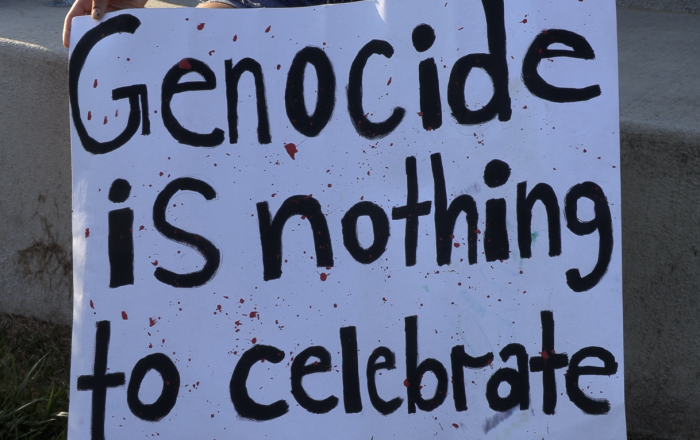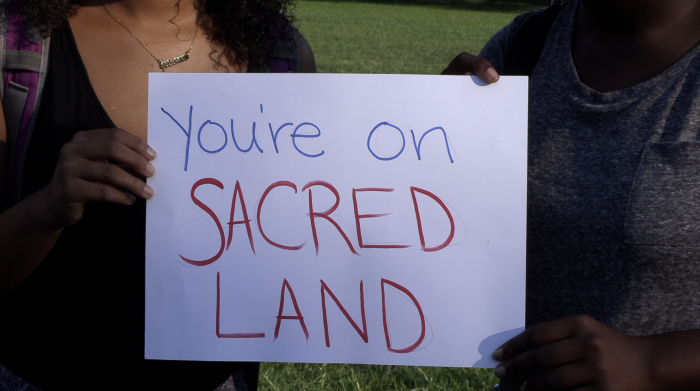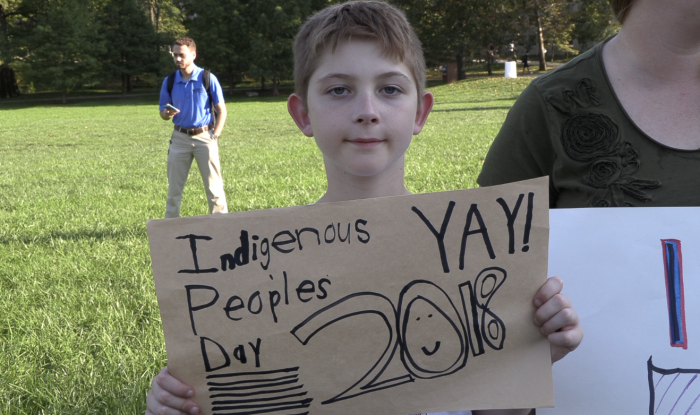On Monday October 8, 2018, the city of Bloomington celebrated its first Indigenous People’s Day, in place of the traditional Columbus Day holiday.
Columbus Day has long been celebrated in observation of Italian explorer Christopher Columbus, who has historically been recognized as the first explorer to discover the Americas in the late 1400’s.
This year, Bloomington was one of the many cities across the United States that decided to replace Columbus Day with Indigenous People’s Day, in recognition of the people who were here first – the Native Americans.
“I don’t recognize Columbus Day. I think Christopher Columbus is someone who got on a boat, meant to go to India and ended up here in America, that’s what we know for sure. What we don’t acknowledge is that he didn’t discover any land. This land was occupied by indigenous people and still is occupied by indigenous people. He colonized them and observed them like animals,” said sophomore Caleb King, who helped organize the event.
The Europeans began to colonize Native American land after their arrival, bringing unfamiliar diseases and weaponry with them, devastating the vast majority of Native American tribes. However, proud Native American descendants still exist in the United States today, though they are far outnumbered.
Native American descendants and non-Native American descendants alike gathered in Dunn Meadow on Monday to show their support and celebrate Bloomington’s first inaugural Indigenous People’s Day.
“I’m here to be supportive of a little tiny, tiny, tiny little tick in the right direction. It doesn’t make up for what has happened, but it’s a small move,” said IU academic advisor Zilia Balkansky Selles.
The event included a march from Dunn Meadow to Bloomington City Hall, where Native American descendants were given a forum to speak about their experiences and about what this new holiday means to them.
The event included powerful testimonies, songs, and even a poem, all from Native American descendants.
Bloomington is the first city in Indiana to recognize Indigenous People’s Day, and Bloomington has its own deep-rooted history with the Native Americans.
The Potowatomi and Miami Indian tribes are among the Native Americans that once called Bloomington home, before the Indian Removal Act of 1830 required these tribes to move west to states like Kansas, Mississippi and Oklahoma.
Today, students at Indiana University are celebrating their Native American roots.
The IU First Nations Educational and Cultural Center (FNECC) is a group for Native American students. FNECC seeks to support Native American students in their higher education through various resources and programs designed to set Native American students up for success.
November is Native American Heritage Month, and the FNECC is holding a variety of free events meant to celebrate indigenous culture.
King says Indigenous People’s Day is just the first step towards his mission to increase Native American cultural awareness on campus.
“I think the first step is representation. I think people have to see us to know that there’s an issue. Before we engage with someone to say there’s a problem they have to know these people exist.”






